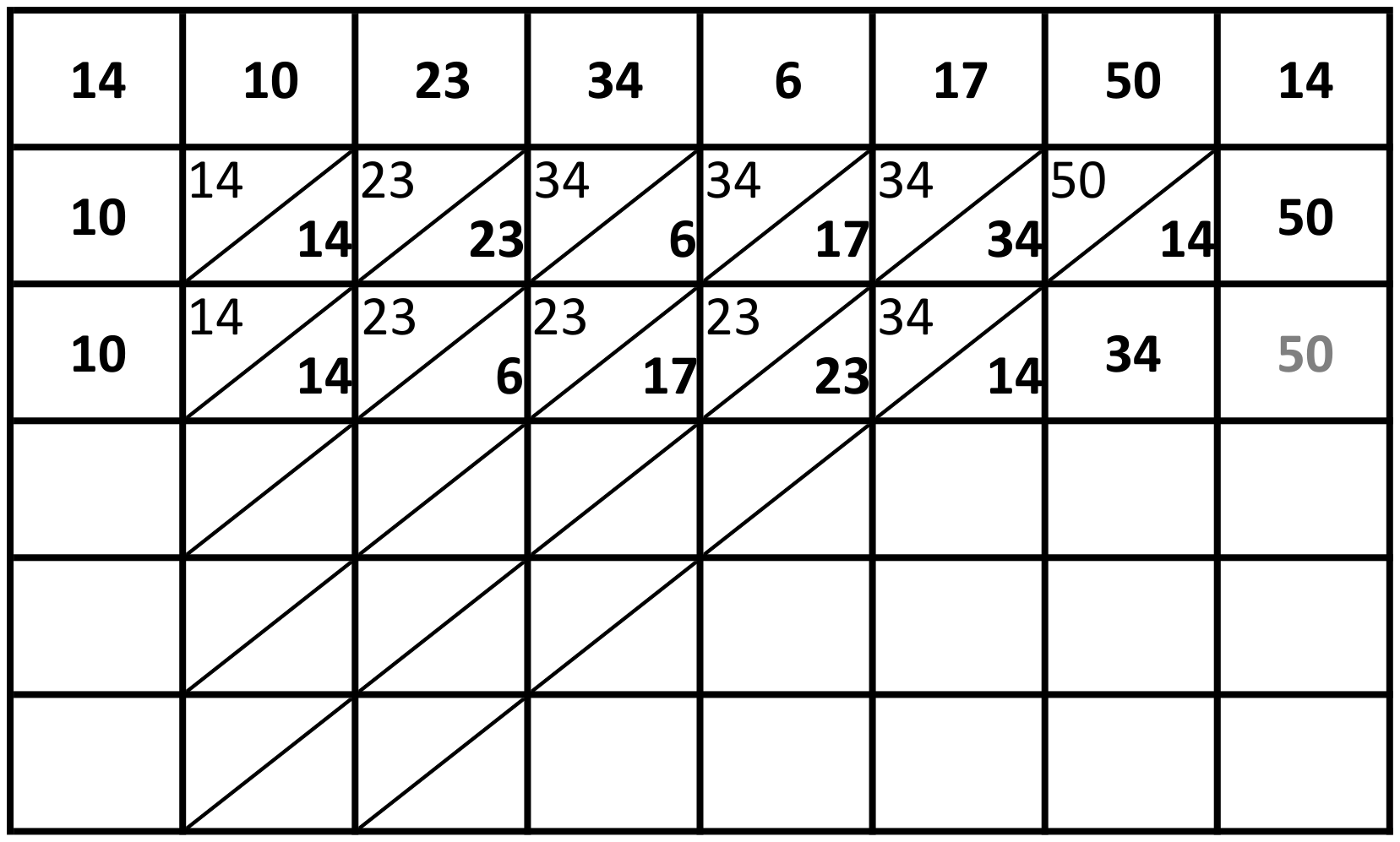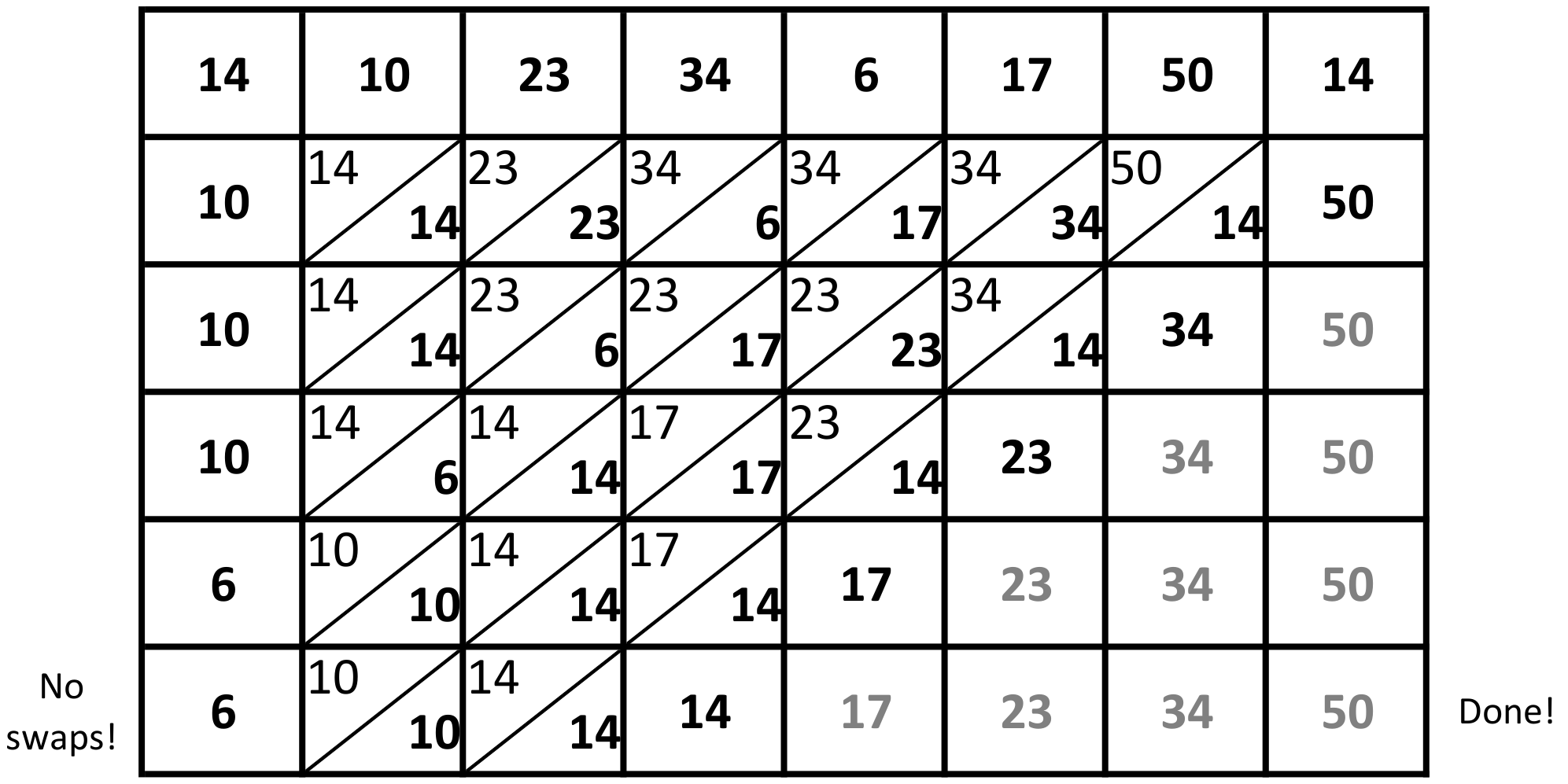Bubble Sort: The Code
- Understand the implementation of bubble sort.
- Explain the "stop early if no swaps" optimization for bubble sort.
Here is how we have implemented bubble sort:
/**
* The Bubble Sort algorithm with the optimized "quick" break to exit
* if the array is sorted.
*
* @param <T> The type being sorted.
*/
public final class BubbleSort<T extends Comparable<T>>
implements SortingAlgorithm<T> {
// is a less than b?
private boolean less(T a, T b) {
return a.compareTo(b) < 0;
}
@Override
public void sort(IndexedList<T> indexedList) {
boolean swapped;
for (int i = indexedList.length() - 1; i > 0; i--) {
swapped = false;
for (int j = 0; j < i; j++) {
if (less(indexedList.get(j + 1), indexedList.get(j))) {
swap(indexedList, j, j + 1);
swapped = true;
}
}
if (!swapped) {
return;
}
}
}
// Pre: i & j are valid indices.
// Post: elements at i & j are swapped.
private void swap(IndexedList<T> indexedList, int i, int j) {
T t = indexedList.get(i);
indexedList.put(i, indexedList.get(j));
indexedList.put(j, t);
}
@Override
public String name() {
return "Bubble Sort";
}
}
Please run the bubble sort code in "debug" mode for the following sequence of values:
$$ 14, 10, 23, 34, 6, 17, 50, 14 $$
You can use the unit test in SortingAlgorithmTest for this purpose.
Exercise Complete the following trace table. As you fill out the table, think about the role of the boolean variable swapped as it is used in the code above.

Making sense of the table!
Each row of the table above represents a complete inner pass through the bubble sort algorithm. Two full passes have been filled as an example of the sort. You are responsible for manually performing the bubble sort algorithm on the remaining passes through the data. The top-left portion of some boxes represents an intermediate value held at that position, and the bottom-right portions represent the final value held at that position for that particular row/inner pass.
Solution

The swapped variable would allow us to stop early if no swaps were made in a full pass of the outer loop. When no swap is made in a complete pass, the items are already in sorted order. We call this the "stop early if no swaps" optimization!